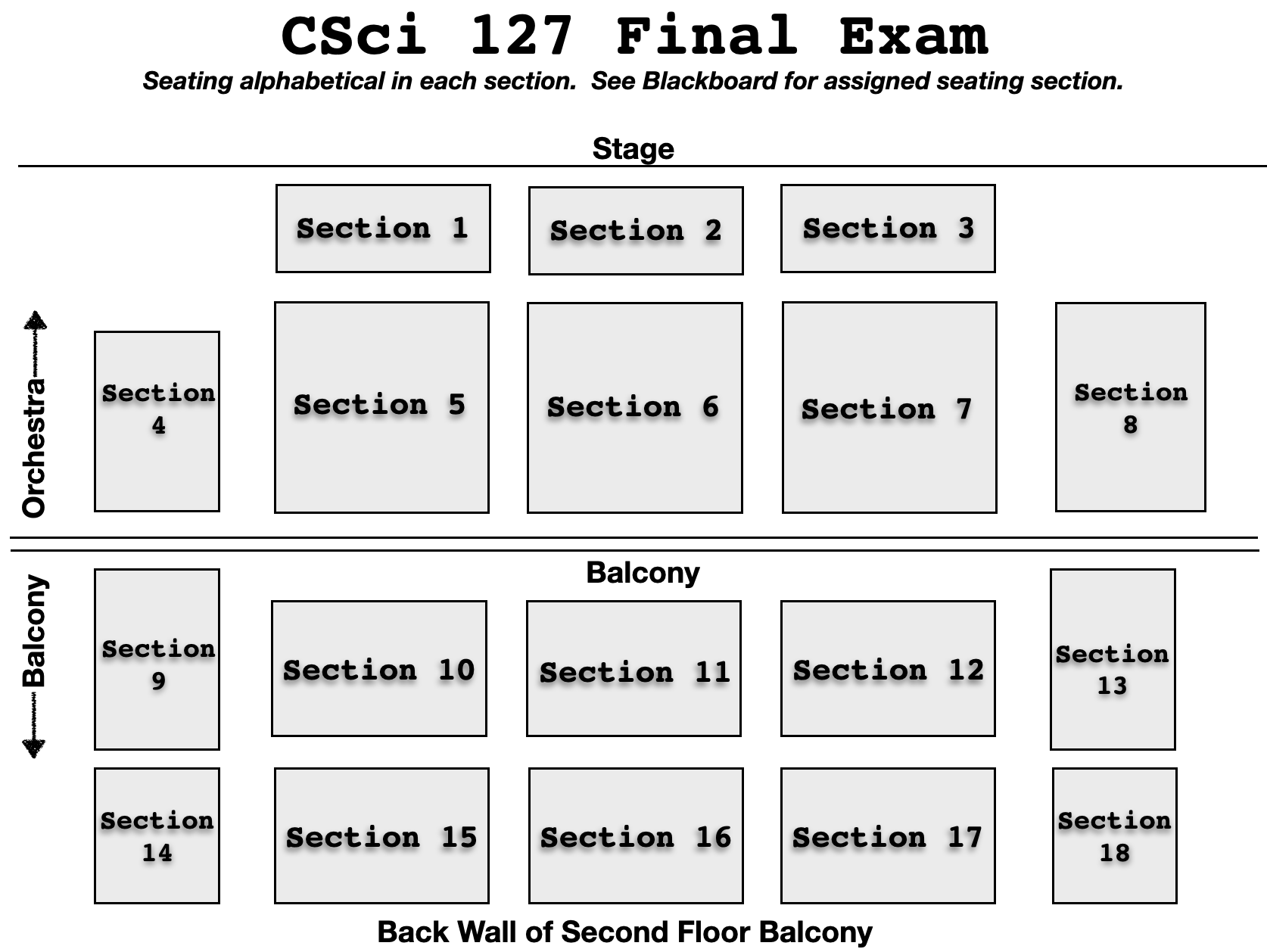General Information
- The exam:
IN PERSON
9-11am, Monday, 19 December
118 Hunter North (Assembly Hall)
- It will cover the material in:
- Past Exams:
- Spring 2019:
- Fall 2018:
- Summer 2018 Exam: Exam
and answer key
- Spring 2018:
- Fall 2017 Exams:
Exam Rules

- There is a seating chart for the mock and final exams (chart will be distributed closer to the date).
See Blackboard for your assigned section the week before the exam. Exams are organized alphabetically in each section.
- Refer to the above seating chart to find your seating section
- Students will sit in the same section for both the Mock and Final Exams
- See Blackboard for your assigned section. Exams are organized alphabetically in each section.
- The exam is closed book and closed notes (except for 1 sheet of notes).
- When taking the exam, you strongly encourage you have with you:
- pencils and erasers
- scrap paper
- a two-sided 8.5" x 11" page of notes.
- You may not use any electronic devices (phone, computer, calculator, smart watch, etc.).
- You must be enrolled in the course to take the exam.
- Seating is assigned by alphabetically by last name.
- When you find your seat, fill in the information sheet and keep out your ID, your note sheet, and pens and pencils.
- Do not open your exam until told to do so.
- After everyone is seated and exam has started, the proctors will check IDs and collect information sheets.
- To get credit for the exam, you will need to also check out with the proctors as you turn in your exam.
- To minimize confusion, you will need to wait until all exams have been passed out and IDs checked before you can submit your exam.
How to Prepare
- Make sure you do all the problems that have been
assigned. The problems (or parts of them) make excellent exam
questions.
- Work through the past exams. These (or variations of them)
often appear on exams.
- While you can print your one page of notes, preparing it by hand is
an excellent way to study. A great way to prepare the notes is to condense the Skeletal Notes and Focus Questions you have been taking when working on each lab during the semester (these are available at the top of each lab to help you take notes and study during the semester). These are great for reviewing and generating the exam notes. Go through each set of lab notes and notes from each lecture and consolidate your list to fit on a single sheet of paper. Include standard formats or templates for coding constructs and design patterns, as well as samples of recurring themes.
